What is the Constitution?
 Following many years of the struggle for freedom, South Africa established a democratic government in 1994. A constitution was created and developed as the most important book of rights for South Africans - it is the highest law of the land. The Constitution was drawn up by the Parliament elected in 1994 and was signed into law 15 years ago by former President Nelson Mandela. It outlines the rules, rights and responsibilities of every citizen and defines the structure of the South African government.
Following many years of the struggle for freedom, South Africa established a democratic government in 1994. A constitution was created and developed as the most important book of rights for South Africans - it is the highest law of the land. The Constitution was drawn up by the Parliament elected in 1994 and was signed into law 15 years ago by former President Nelson Mandela. It outlines the rules, rights and responsibilities of every citizen and defines the structure of the South African government.
Why do we need a Constitution?
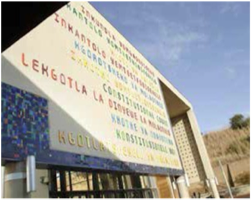 The Constitution promotes a better life for all citizens, and binds the State to respect, protect, promote and fulfil the right of every South African. It is used as a legal guide in court and within our legal system, to ensure that all citizens, regardless of race, culture or gender are treated with equal dignity and respect.
The Constitution promotes a better life for all citizens, and binds the State to respect, protect, promote and fulfil the right of every South African. It is used as a legal guide in court and within our legal system, to ensure that all citizens, regardless of race, culture or gender are treated with equal dignity and respect.
What does the Constitution say?
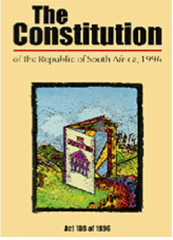 Human rights forms the foundation on which the Constitution was created. It aims to create a society based on democratic values, social justice and fundamental human rights. According to our Constitution, every South African has basic rights, including human dignity, equality, freedom of expression and association, political and property rights, housing, healthcare, education, access to information and access to courts. Another issue given prominence in the Constitution is language. The Constitution states that everyone has the right to use the language and participate in the cultural life of his or her choice. The Constitution recognises all 11 official languages - Afrikaans, English, isiNdebele, isiXhosa, isiZulu, Sepedi, Sesotho, Setswana, siSwati, Tshivenda and Xitsonga. But specific attention is also paid to the Khoi, Nama and San languages and to sign language.
Human rights forms the foundation on which the Constitution was created. It aims to create a society based on democratic values, social justice and fundamental human rights. According to our Constitution, every South African has basic rights, including human dignity, equality, freedom of expression and association, political and property rights, housing, healthcare, education, access to information and access to courts. Another issue given prominence in the Constitution is language. The Constitution states that everyone has the right to use the language and participate in the cultural life of his or her choice. The Constitution recognises all 11 official languages - Afrikaans, English, isiNdebele, isiXhosa, isiZulu, Sepedi, Sesotho, Setswana, siSwati, Tshivenda and Xitsonga. But specific attention is also paid to the Khoi, Nama and San languages and to sign language.
Paving a democratic future
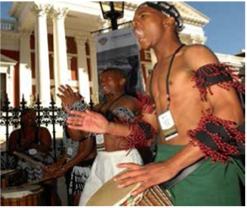 The 1994 democratic election was the first time that citizens who had been marginalised for many decades could vote. The Constitution was adopted to heal divisions of the past and establish an open society based on democratic values, social justice and fundamental human rights where government is based on the will of the people. Today, it is regarded as the most progressive constitution in the world. Since 1994, government has created platforms for citizens to participate in the development of the country at national, provincial and local levels of governance.
The 1994 democratic election was the first time that citizens who had been marginalised for many decades could vote. The Constitution was adopted to heal divisions of the past and establish an open society based on democratic values, social justice and fundamental human rights where government is based on the will of the people. Today, it is regarded as the most progressive constitution in the world. Since 1994, government has created platforms for citizens to participate in the development of the country at national, provincial and local levels of governance.
For instance, today, parents play a vital role in shaping the future of education and learners at schools by actively taking decisions on educational issues and School Governing Bodies (SGBs). The country has also created a platform for learners, through Learner Representative Councils (LRC), to participate in issues affecting the future of their education. Citizens are also more involved in making decisions on Integrated Development Plans (IDPs) at local government level. These developments and other related participatory platforms are a dynamic improvement in ensuring citizen
Bill of Rights - what are the citizen’s responsibilities?
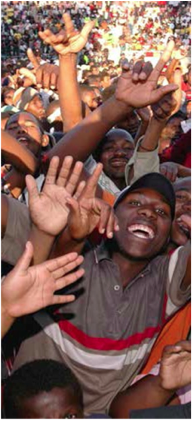 The Bill of Rights ensures the rights of all people in the country and upholds the democratic values of human dignity, equality and freedom. One of the most important elements of democracy is respect for each other’s rights. The ongoing violence against Gays, Lesbians, Bisexuals, Transgender and Intersexed (LGBTI) community, foreigners, women, children, persons with disability and the elderly is a serious violation of their rights to human dignity, equality and freedom. Government has put in place a number of measures to address and end this scourge of violence.
The Bill of Rights ensures the rights of all people in the country and upholds the democratic values of human dignity, equality and freedom. One of the most important elements of democracy is respect for each other’s rights. The ongoing violence against Gays, Lesbians, Bisexuals, Transgender and Intersexed (LGBTI) community, foreigners, women, children, persons with disability and the elderly is a serious violation of their rights to human dignity, equality and freedom. Government has put in place a number of measures to address and end this scourge of violence.
These actions go against the intent of the Constitution, which requires citizens to build a human rights culture and to respect the rights and freedoms of others.
The role of state institutions
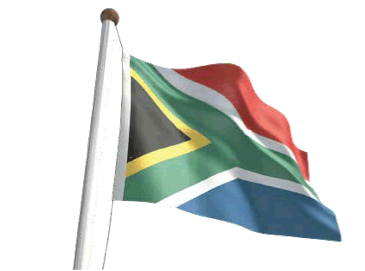 Chapter 9 of the Constitution gives birth to a number of institutions which are tasked with strengthening constitutional democracy. These institutions include the Public Protector, commissions addressing human rights, gender equality and elections, the Auditor-General, the Commission for the Pro- motion and Protection of the Rights of Cultural, Religious and Linguistic Communities and the Independent Electoral Commission. No person or organ of state may interfere with the functioning of these institutions. The main purpose and function of these institutions is to protect human rights for all, investigate human rights abuses and come up with helpful actions. They may also serve as mediators between victims whose rights have been infringed and the actual perpetrators. They are able to help citizens claim their rights, and provide access to justice for all.
Chapter 9 of the Constitution gives birth to a number of institutions which are tasked with strengthening constitutional democracy. These institutions include the Public Protector, commissions addressing human rights, gender equality and elections, the Auditor-General, the Commission for the Pro- motion and Protection of the Rights of Cultural, Religious and Linguistic Communities and the Independent Electoral Commission. No person or organ of state may interfere with the functioning of these institutions. The main purpose and function of these institutions is to protect human rights for all, investigate human rights abuses and come up with helpful actions. They may also serve as mediators between victims whose rights have been infringed and the actual perpetrators. They are able to help citizens claim their rights, and provide access to justice for all.
The Constitution goes a long way in protecting and promoting the rights of all people in South Africa. All institutions and the general public are expected to fulfil and uphold its values and principles.



 Facebook
Facebook Twitter
Twitter WhatsApp
WhatsApp